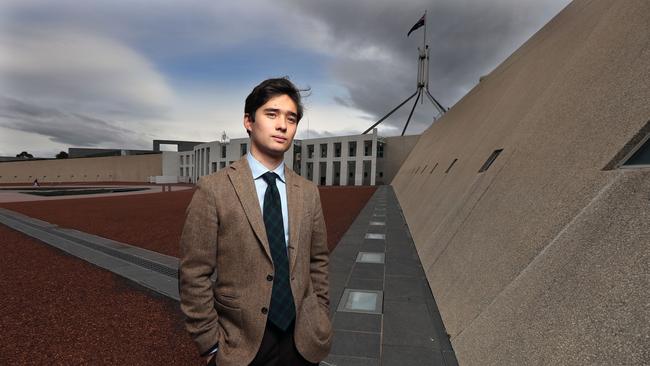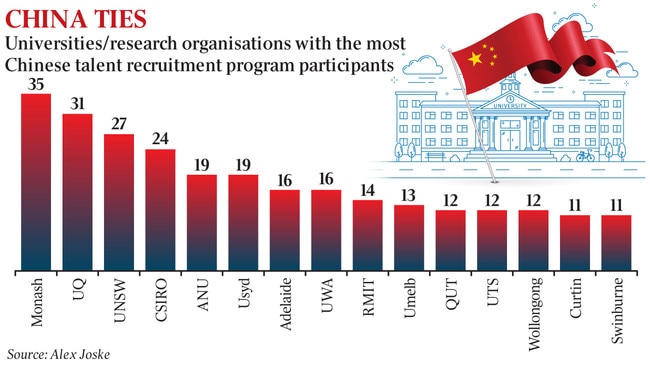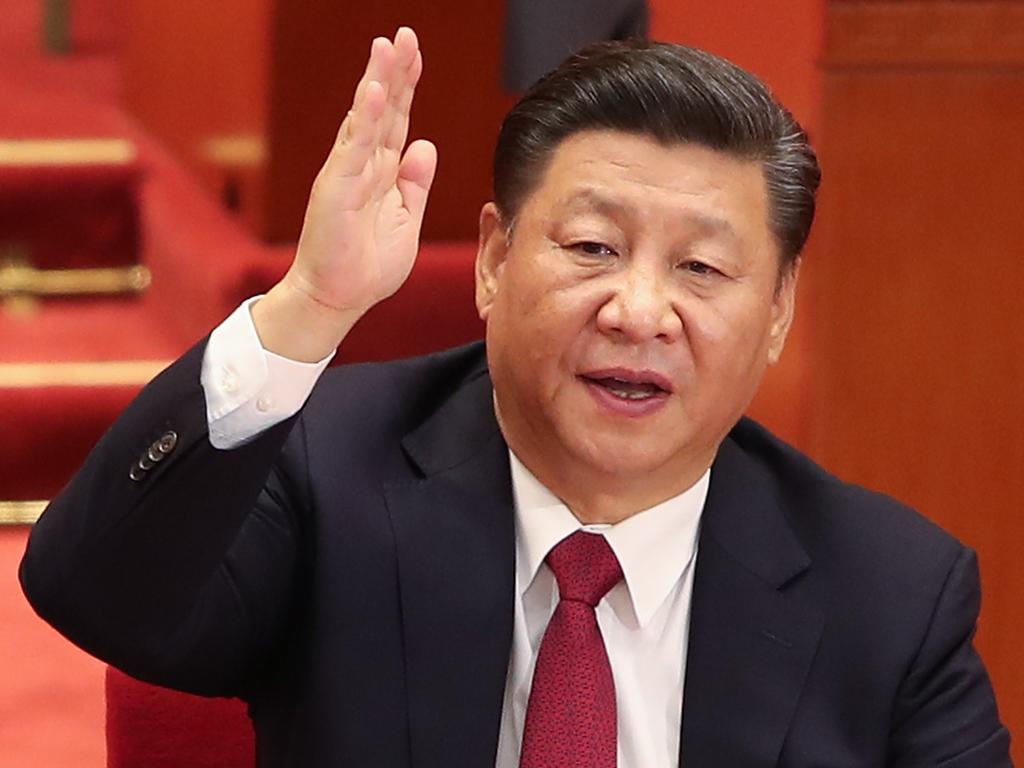China has recruited ‘hundreds’ of academics
The CCP has recruited hundreds of scientists and scholars at Australian tertiary and government research institutions.

The Chinese Communist Party has recruited more than 300 scientists and scholars at Australian tertiary and government research institutions through its talent recruitment programs — and maybe as many as 600 — a new submission to a parliamentary inquiry has revealed.
The submission, by China expert Alex Joske, warns that the secretive recruitment programs could be associated with up to $280m in grant fraud and raises concerns that Beijing could obtain backdoor access to sensitive technology and lucrative innovations.
In August, The Australian revealed dozens of researchers had been recruited as part of Beijing’s Thousand Talents Plan, which offers them lucrative salaries and perks but requires that their inventions must be patented in China and obliges them to abide by Chinese law.
The worldwide exclusive revealed how some academics targeted by the scheme worked in fields of research with a military application, which FBI director Christopher Wray described as both economic espionage and a national security threat.
The Parliamentary Joint Committee on Intelligence and Security inquiry was launched after The Australian’s revelations that the Chinese government was actively recruiting our scientists to take part in a secretive program that requires intellectual property to be patented in China.
Mr Joske’s submission to the inquiry highlights how a significant number of the academics received lucrative fellowships worth between $1m and $3m from the Australian Research Council, while they also maintained employment in China.

However, Mr Joske estimates that the Thousand Talents Plan represents only just over a third of the cases he has identified in his recent submission to the parliamentary inquiry, demonstrating the breadth of the CCP’s talent recruitment programs.
“I think it’s really concerning,” Mr Joske told The Australian.
“Combined with the possible extent of grant fraud and other forms of misconduct associated with this activity, it is really an alarming issue.”
University of Queensland professor George Zhao received about $3.9m in ARC funding from two fellowships, one of which was still ongoing, despite heading a battery company in Qingdao with $US10m ($13m) in registered capital since 2014, and being a honorary director at a Chinese research institute.
Mr Joske said the 325 participants he identified were “probably only a minority of cases … and there may be well more than 600 instances of recruitment in total”. He said compared to other countries, the CCP’s talent recruitment push was “disproportionately” focused on Australia.
“One of the key takeaways is that the Thousand Talents Plan is particularly important, but it is just one part of the bigger picture of Chinese government talent recruitment,” he said.
“But all these programs raised similar concerns.”
Another professor, Brad Yu Changbin, received multiple fellowships while working on defence-funded drone projects as he trained as a People’s Liberation Army scientist. He is now the chief technician of the Chinese military’s fixed-wing drone program.
In total, at least 59 individuals received fellowships from the ARC while simultaneously working in China, which Mr Joske estimated may be associated with up to $280m in grant fraud over the past two decades.
While Professor Zhao conceded he had done the wrong thing by lending his name to the Chinese energy company, becoming a de facto chief executive, he maintained he had never gained financially, nor had he contributed at any time to the business.
He also said he had told UQ about his position at Qinqdao University, but not the 500,000 yuan ($100,000) allowance he was awarded.
In research released in August, Mr Joske identified 57 “recruitment workstations” set up to spot and recruit talent in Australia, part of 500 discovered globally. While recruitment activity appeared to peak in 2017, Mr Joske said it was likely that this was still occurring at high levels but had become more difficult to track.
The submission is part of a parliamentary inquiry into national security risks affecting the Australian higher education and research sector, which is due to report to Home Affairs Minister Peter Dutton by July.
Examples of the talent recruitment were evident at all leading universities. Monash University had the highest number of talent recruitment participants with 35, closely followed by UQ with 31, and UNSW with 27.
A spokeswoman for the ARC said it had not received any details of the allegations raised by Mr Joske, but the council expected the “highest standards of integrity in all aspects of research funds”.
“All universities have obligations to ensure that appropriate due diligence is undertaken,” she said.







To join the conversation, please log in. Don't have an account? Register
Join the conversation, you are commenting as Logout